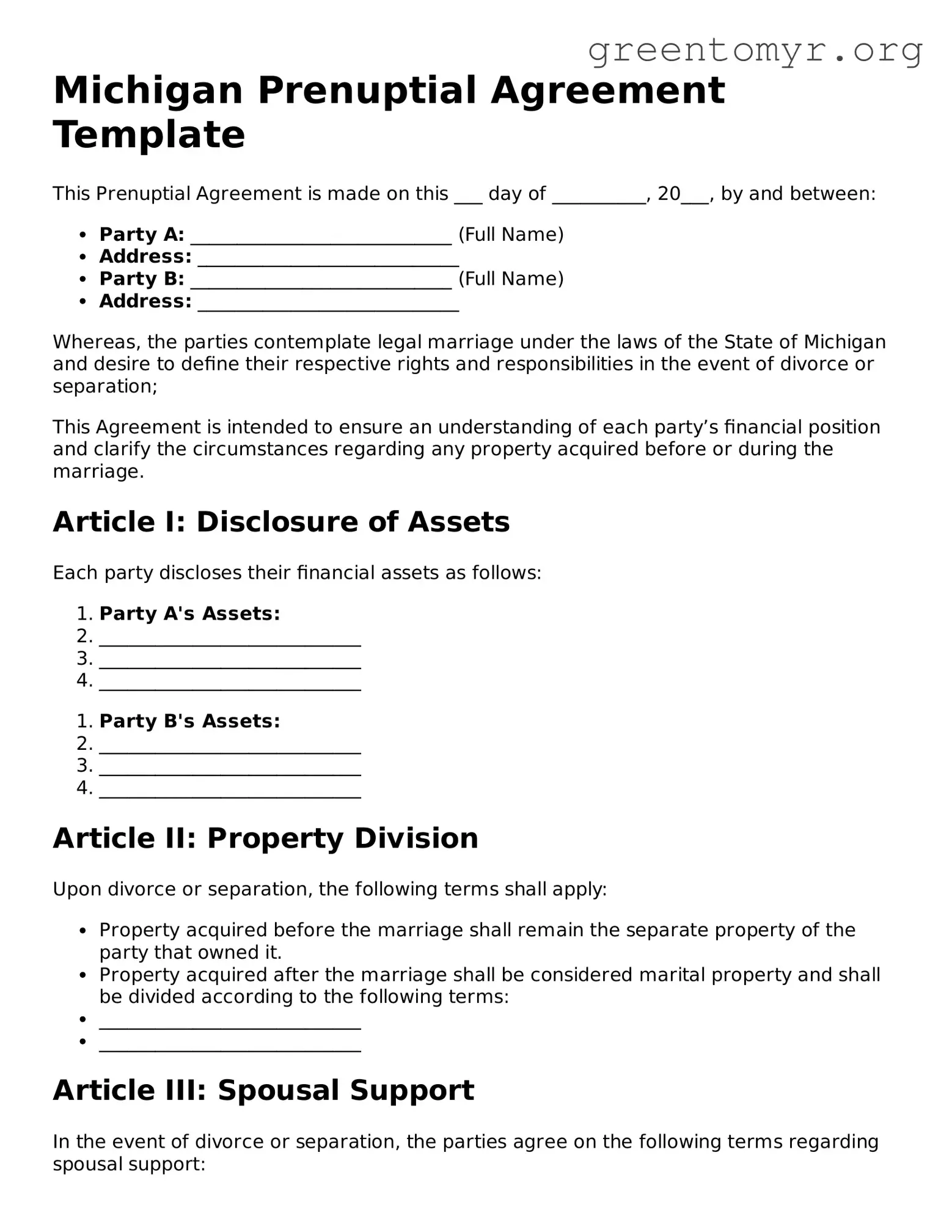Michigan Prenuptial Agreement Template
This Prenuptial Agreement is made on this ___ day of __________, 20___, by and between:
- Party A: ____________________________ (Full Name)
- Address: ____________________________
- Party B: ____________________________ (Full Name)
- Address: ____________________________
Whereas, the parties contemplate legal marriage under the laws of the State of Michigan and desire to define their respective rights and responsibilities in the event of divorce or separation;
This Agreement is intended to ensure an understanding of each party’s financial position and clarify the circumstances regarding any property acquired before or during the marriage.
Article I: Disclosure of Assets
Each party discloses their financial assets as follows:
- Party A's Assets:
- ____________________________
- ____________________________
- ____________________________
- Party B's Assets:
- ____________________________
- ____________________________
- ____________________________
Article II: Property Division
Upon divorce or separation, the following terms shall apply:
- Property acquired before the marriage shall remain the separate property of the party that owned it.
- Property acquired after the marriage shall be considered marital property and shall be divided according to the following terms:
- ____________________________
- ____________________________
Article III: Spousal Support
In the event of divorce or separation, the parties agree on the following terms regarding spousal support:
- ____________________________
- ____________________________
Article IV: Miscellaneous
This Agreement may be amended only by written agreement of both parties. Each party acknowledges that they are entering this Agreement voluntarily and without duress.
In witness whereof, the parties have executed this Prenuptial Agreement on the day and year first above written.
Party A Signature: ____________________________ Date: ____________
Party B Signature: ____________________________ Date: ____________
This document is intended to comply with Michigan laws governing prenuptial agreements. It is advisable that each party seeks legal counsel before signing.
